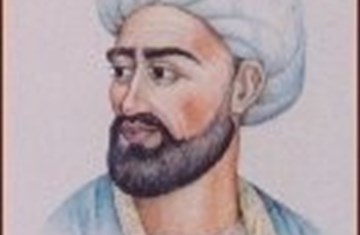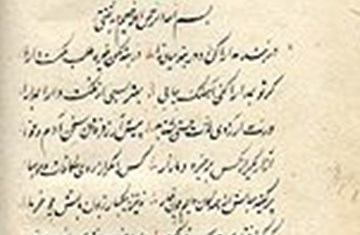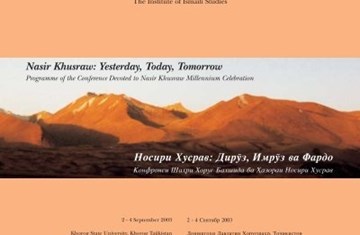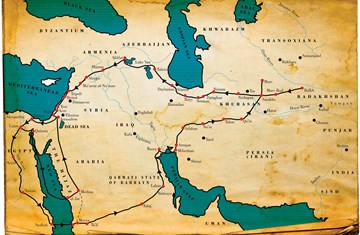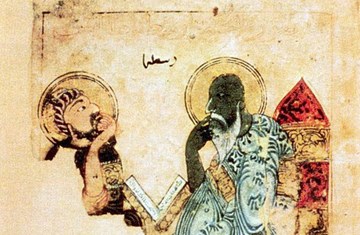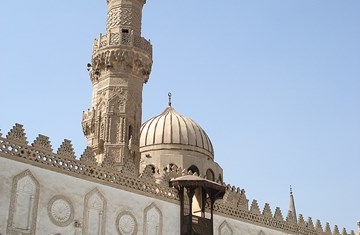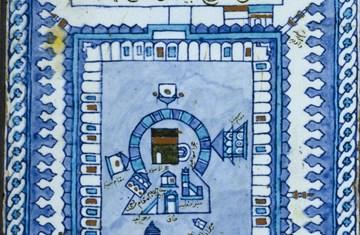Khusraw’s philosophical works reveal a strong Neoplatonic structure and vocabulary. For example, his cosmogony closely follows Plotinus, moving from God and God’s word (logos), to Intellect, Soul, and the world of Nature. In holding to this cosmogonic description, Khusraw follows his fellow Ismailis (Nasafi and al-Sijistani) and ignores the structure introduced by al-Farabi and picked up by Ibn Sina and the Ismaili philosopher al-Kirmani.
Before looking at this more closely, it is important to understand that underlying each of the Ismaili cosmogonic systems is a fundamental division of all into two realms, the esoteric and the exoteric, the batin and zahir. With this division, everything in the physical world points to its counterpart in the spiritual, which is seen as its source, its home, its true form.
Thus the cosmogonic structure itself reveals a purposeful, providential unfolding from the imaginal, spiritual into the physical, which looks back at the spiritual and seeks to grasp it and comprehend it. Khusraw begins with a discussion of tawhid (oneness, God’s unity), the clear understanding of which is the only way to achieve spiritual perfection. For Nasir, God Himself is indescribable (nothing which has an opposite can be ascribed to Him, since that would be limiting Him to human concepts) and is not a being, in fact, is beyond all categories of being and non-being alike. However, from God emerges his Word (kalmia), ‘Be!’, which brings into existence Universal Intellect, perfect in potentiality and actuality.
Intellect contains all being within itself, with no time or space, all opposites with no differentiation. Intellect enjoys a worshipful intimacy with God and a perfection born of this intimacy. From this worship, emerges Universal Soul, perfect in potentiality but not in actuality, because it is separated from God by Intellect. Universal Soul recognises this separation, desires the perfection enjoyed by Intellect, and moves to approach closer to God. With these three actions, and its movement seeking perfection, Soul introduces the first movement into the entire structure, thus also time and place.
The entire cosmos has thus been set into motion, and with it the oppositions of hot, cold, wet, dry, and from them the four elements: earth, air, fire and water. From these elements arise first the minerals, then the plants, then the animals, and finally, the summit of physical creation, human beings, embedded within whom are individual intellects and individual souls manifesting the same characteristics (but on an smaller level) as the universals.
In fact, the entire cosmos is laid down on a matrix of Intellect and Soul; everything within it displays the original intelligence and drive exhibited by the original duo. Khusraw’s ethics grow from and reflect this cosmogony. Each individual’s task is to recognise his or her own imperfections and then move to correct them, seeking the closest relationship possible with God. For Khusraw, this is achieved by stringent and repeated application of the intellect, to both physical and spiritual matters.
The believer must find a guide, must study diligently, must perform all required religious acts with full understanding, and must accompany new understanding with new, superior levels of worldly activity. As an Ismaili, Khusraw held the Shi‘i doctrine that God would not send a revelation without a guide to interpret it. For the Ismailis, this guide must be a living person, the Imam of the Time, divinely inspired, infallible, and perfectly capable of providing guidance in spiritual and worldly affairs, who thus serves as a living bridge between the two realms.



